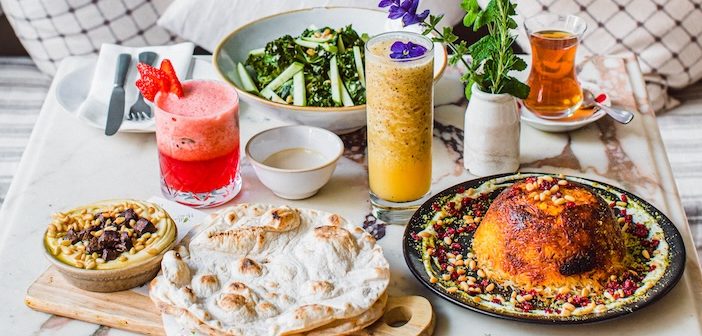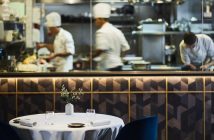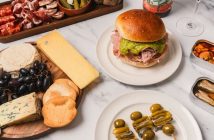It’s often the case that restaurant critics become so fixated on the latest buzzy opening that they overlook established gems quietly thriving in the background — to their detriment. I, for one, fancied myself well-versed in the London dining scene, so I was genuinely surprised to learn that one such venue, on the prestigious Elystan Street no less, has been quietly packing out its 30-odd covers every night since 2017.
What’s more surprising is that amid the fanfare surrounding Levantine and Middle Eastern cuisine over the last decade, this understated Chelsea spot is the only restaurant in London offering food from Bahrain. And here’s where my ignorance reared its head: what do you actually know about Bahraini cuisine? Exactly. You’d assume it falls under a generic ‘Middle Eastern’ umbrella. You’d be wrong.
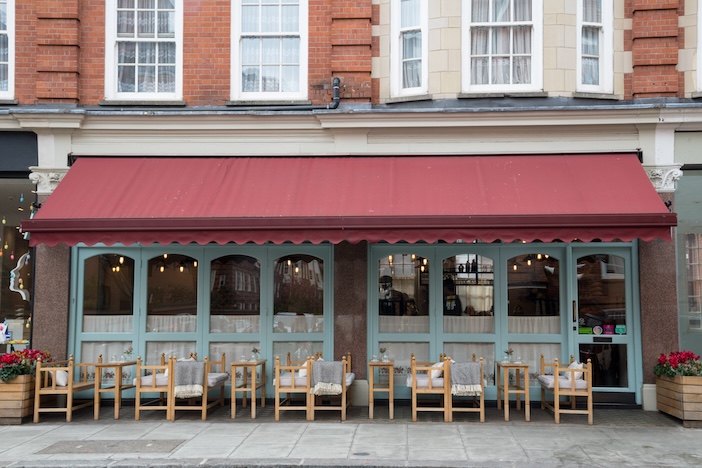
The confusion may start with the name. ‘Villa Mamas’ hardly conjures Bedouin imagery, and you’d be forgiven for mistaking it for yet another Italian trattoria dispatching bowls of home-cooked pasta to hungry locals.
But the ‘Mama’ in question is Roaya Saleh — quite literally the mother figure to the devoted clientele who frequent her restaurants. Not just here in London, either; Villa Mamas has firmly planted its roots in Bahrain, Riyadh, and Abu Dhabi, with more on the way across the Arabian Peninsula.
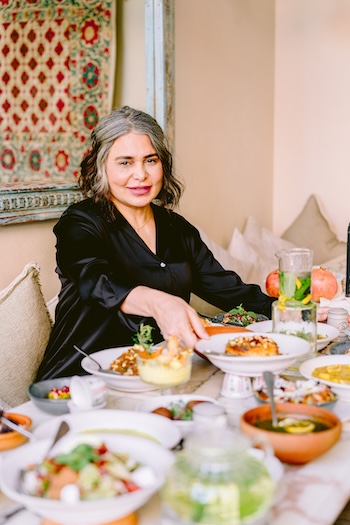 That maternal soubriquet stems from Roaya’s desire to bring Bahraini cuisine to the world stage. She started by sharing traditional recipes on social media, attracting a loyal following — particularly among homesick ex-pat students, who clung to her cooking as a lifeline. It was this fanbase that queued around the block when she launched a pop-up in London in 2016. Buoyed by its success and guided by the age-old mantra — “If you can succeed in London, you can succeed anywhere” — she opened her first bricks-and-mortar restaurant the following year. As for location? “It had to be Chelsea,” she tells me. And so, Elystan Street it was.
That maternal soubriquet stems from Roaya’s desire to bring Bahraini cuisine to the world stage. She started by sharing traditional recipes on social media, attracting a loyal following — particularly among homesick ex-pat students, who clung to her cooking as a lifeline. It was this fanbase that queued around the block when she launched a pop-up in London in 2016. Buoyed by its success and guided by the age-old mantra — “If you can succeed in London, you can succeed anywhere” — she opened her first bricks-and-mortar restaurant the following year. As for location? “It had to be Chelsea,” she tells me. And so, Elystan Street it was.
Perhaps surprisingly, Roaya doesn’t come from a culinary background. Coming from the Finance world, the idea for her first restaurant came from an unlikely catalyst. It turns out, even in Bahrain there’s not much in the way of Bahraini restaurants – it’s all franchises and fast food – and that’s what sparked the idea; wanting to take her international clients to showcase local food and Khaleeji culture. So, she resolved to create one. And she chose an unexpected — but telling — location for her first: not in a glittering urban setting, but near Bahrain’s main market, where she could source the ingredients and tap into the soul of the island. Authenticity was always the priority.
So, what defines Bahraini cuisine? Fundamentally, it reflects the country’s history as a trading port. That heritage sets it apart from more familiar Middle Eastern fare. Think jirish kibbeh, inspired by arancini, where cracked wheat forms delicate balls in place of traditional rice; hummus reimagined with local spices; meat dishes where fruit isn’t just an accessory — and not just raisins or apricots either.
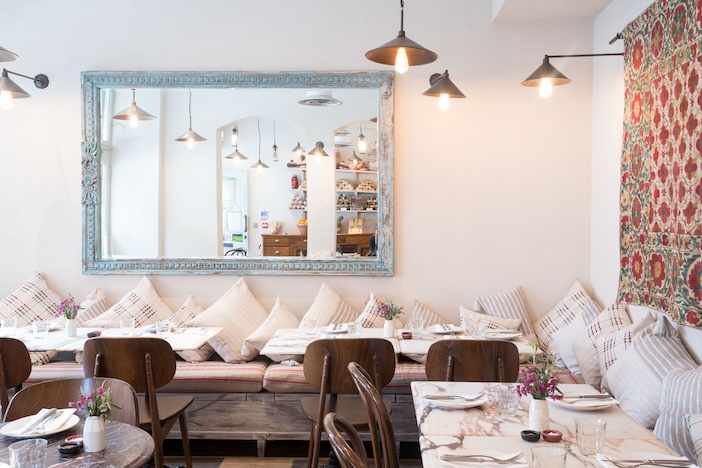
We sit on low bench seating, surrounded by soft furnishings handmade by Roaya’s sister, in a dining room that feels more like an extension of her kitchen than a formal restaurant. Roaya is the consummate host, gliding from table to table. “This is nothing you’ve had before, believe me,” she says, as she serves up ch’bood deyay — chicken livers with spices, cranberries, and something at once sour and earthy I still can’t place.
There’s a flatbread topped with a salted fish paste, and mozat lamb, famously tender and falling from the bone, served over rice tinged with orange blossom. She wasn’t exaggerating — you barely need to chew it. The chicken shish is the quiet star: a gentle warmth lingers, soothed by mint yoghurt. What could easily be dismissed as ‘just a kebab’ becomes a centrepiece in a symphony of flavours. When Roaya asks my favourite, I falter — I list every dish in turn as I scan the table.
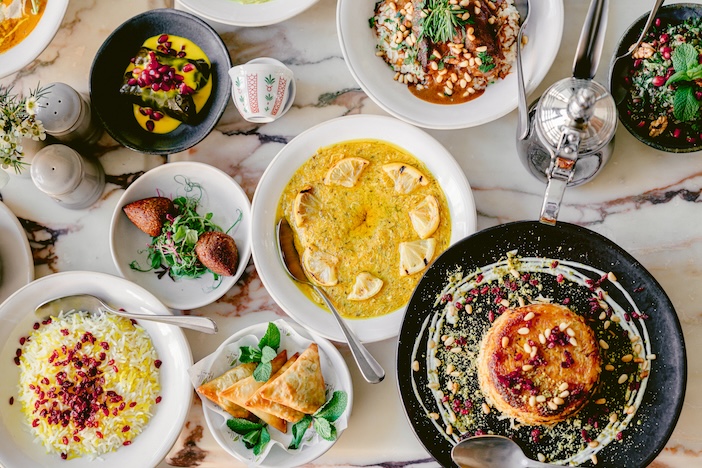
Villa Mamas is more than a restaurant — it’s a celebration of Arab hospitality. Desserts like Egyptian Um Ali bread pudding and rosewater-infused rice pudding with pistachios are served in generous sharing platters. “In Arab culture, we like to entertain; if we have guests, we cook the whole lamb — and share the leftovers with our neighbours,” Roaya tells me. And much like her original restaurant, which sits in the cultural heart of her homeland, she has fostered a sense of community here in London. Her suppliers aren’t anonymous wholesalers; they’re local artisans. Ingredients are traded among neighbouring restaurants. She’s the neighbourhood matriarch in every sense.
And what of the name? Roaya feared the original Arabic, Bait Umi (‘Mother’s House’), would pigeonhole the restaurant. She wanted something international, something that reflected Bahrain’s pluralistic identity. And so, Villa Mamas was born. Misleading it might be but, ultimately, the language is irrelevant, it’s the sentiment that counts — and this Mama delivers it in abundance.
Villa Mamas, 25-27 Elystan Street, Chelsea SW3 3NT. For more information, the online shop, and for bookings, please visit www.villamamas.com.

